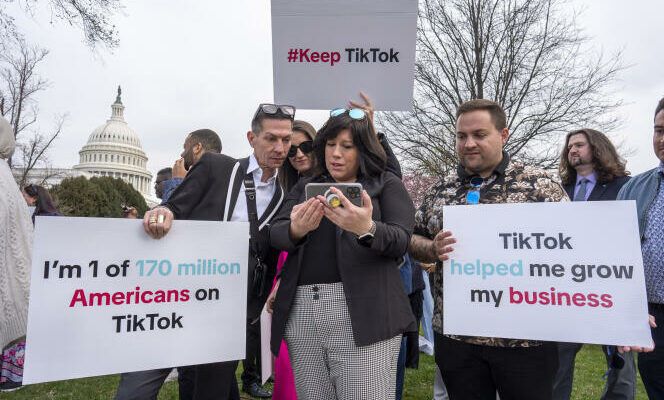The videos that follow one another, always to the taste of the users, a fluid and addictive experience. The secret of the success of TikTok, the most downloaded application in the world between 2020 and 2022, Zhang Yiming, the founder of ByteDance, parent company of TikTok, explained it to his employees in 2015, during a company seminar. After the Lunar New Year holidays, the boss invited a few dozen employees to the island of Okinawa, Japan. In a traditional restaurant in Naha, the tech entrepreneur, a reserved man with a geeky air, details his vision. The Chinese are already largely equipped with smartphones and are moving away from their PCs, the speed of mobile Internet is starting to be sufficient. Zhang wants to reverse the way we access information: no more need to click and do research, new applications could automatically suggest content to suit customers’ tastes.
Its developers were going to have to work on an application that constantly presented new videos to the user. ByteDance is not alone, but the company has the advantage of having had success with Jinri Toutiao, an information aggregator already equipped with a powerful algorithm capable of learning from the choices of its customers to improve the recommendations. “The app model based on an artificial intelligence algorithm [IA] based 100% on user interests has really emerged in China”remembers Guo Yu, at the time one of the chief engineers of what was then just a start-up, ByteDance.
The application, launched at the end of 2016, called Douyin (“move to music”, in Chinese), and especially its version outside Chinese borders launched in 2017, TikTok, find themselves at the center of political attention in the United States. On Wednesday March 13, in Washington, members of the House of Representatives voted overwhelmingly for a law that would force ByteDance to sell TikTok to a non-Chinese entity, or be banned. The law must still pass through the Senate, less convinced for the moment, but it represents a warning for Chinese groups, at a time when America and Europe are questioning the risks of their exposure to China. . Three of the four most downloaded free apps on Android phones in the United States are currently Chinese: Temu, TikTok and Shein, just behind WhatsApp, which is owned by Meta.
Hard working environment
Their success shows, contrary to American intuition, that the liberal Californian atmosphere is not the only one from which innovation can emerge. Employees of China’s new tech champions describe a tough but determined work environment with impressive results. Guo Yu, who stayed at ByteDance for six years, from 2014 to 2020, says he lived there at a pace even more demanding than the “9-9-6” often mentioned in the sector in China – starting at 9 a.m., finishing at 9 p.m. , six days out of six. “ We usually started at ten o’clock, but we always finished at night, around 1 or 2 o’clock, including Saturdays., he says. It’s very different from Silicon Valley, but it was instrumental in designing TikTok. »
You have 56.69% of this article left to read. The rest is reserved for subscribers.
